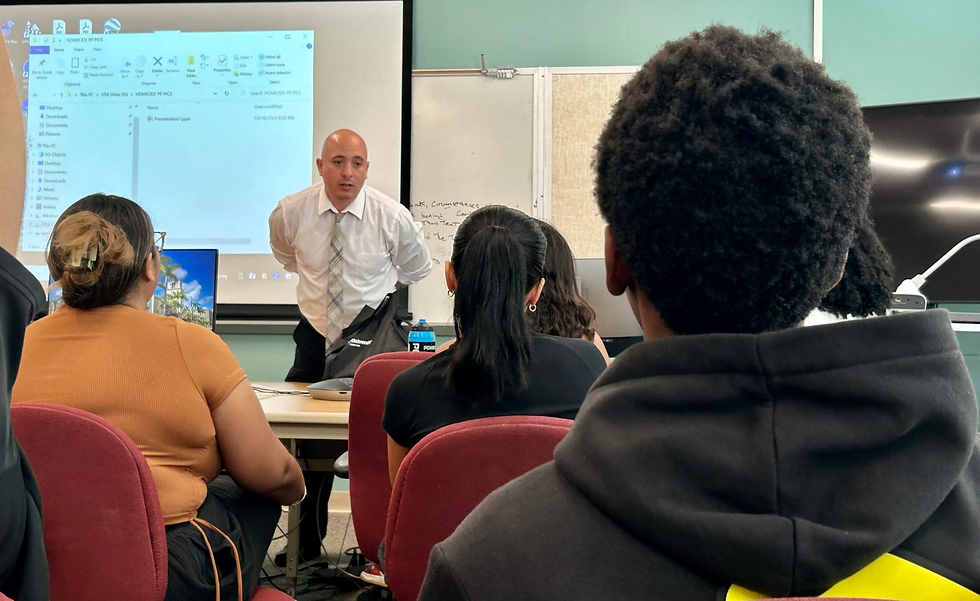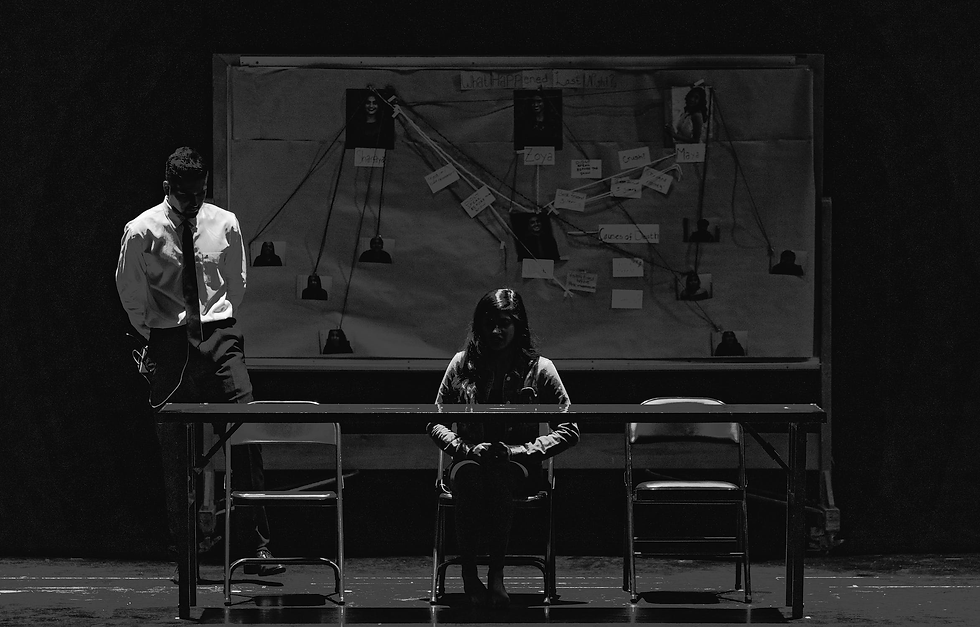A Crash Course for Crime Storytellers
- Anna Galaktionov
- Oct 26, 2023
- 3 min read
By Isabel Pulgarin

A hard look into the world of crime storytelling came to the halls of Powers in the form of South Florida Homicide Detective Christopher Santos. On Oct. 17, with student screenwriters and Humanities Professor Celeste Landeros’s students from Roots, Rap, and Reggae in audience, he shared his passion for seeking the truth by sharing his insights on crime in a crash course for up-and-coming storytellers.
He is the first of a three-part Writer’s Series this fall organized by English and professional writing professor Dr. Andrea Greenbaum and the Department of English and Foreign Language for insight from professionals in entertainment and experts in particular fields.
Santos is a Miami native, born and bred. He became a combat marine right out of high school after graduating in 2003, served two tours in Iraq, and later graduated from the Los Angeles Film School in 2012 with an associate degree in film science with a focus on screenwriting. Since joining law enforcement in 2015, he has been assigned to uniform patrol, the Special Victims Bureau, to ultimately serve in the local Homicide Bureau where he has so far led and assisted in hundreds of death and homicide investigations.
“I think humans are essentially good. Real good,” said Santos when asked whether he believes humans are essentially good or evil considering all he has seen as a combat marine veteran and detective.
As an off-the-clock civilian with an invested interest in screenwriting, he imparted the blunt realities of investigations, traditional character arcs in the crime genre, and the morality in protagonists and antagonists when they are portrayed by cops or criminals. He discussed the various characters and personalities of criminals, the common tropes of “good guy vs. bad guy,” and the order of events from investigating a crime scene and gathering evidence against suspects for an arrest or search warrant to when the criminal is on trial.

“Something to explore when talking about motive for your good guy and your bad guy is morals. Because the morals set the line for the good guy and the bad guy. Sometimes a person with good morals does bad things and a person with poor morals does good things. And that is fun to layer in your story,” said Santos on the paths characters take to reach their goals and that of writers to conclude their stories.
He spoke about the two types of detectives: those with street smarts and those with books smarts. And for them to solve a case, he explained they look at cell phones, videos, and interviews as a few golden pieces of the puzzle in stacking evidence against a suspect.
The crime films “American Gangster,” “Training Day,” and “End of Watch,” were his inspiration for joining the police force. They are personal favorites that blend his two worlds the best.
In the crime genre, there’s nothing worse than a writer writing a story disconnected from reality. Authenticity in films is key to having a story and its characters feel realistic and relatable, especially when it comes to the intricate genre of crime.
“Every time I teach Screenwriting, I invite homicide detectives to visit the classroom, since many students write teleplays or screenplays that involve some aspect of criminal activity,” said Dr. Greenbaum. “In order to create verisimilitude in student scripts, I find it useful to have a professional in law enforcement come and speak about their investigative methods.”

She has two more speakers lined up for her Writers’ Series including Bill Marsilii, co-writer of the Denzel Washington film “Déjà Vu,” and former writer and executive producer of “The Blacklist,” Daniel Knauf. Marsilii will speak on Thursday, October 27 via Zoom at 11 a.m. about how to write a successful short feature screenplay, and Knauf will visit on Nov. 12 at 11 a.m. to advise on television writing. Both guest speaker events will take place in Powers 139. If you are interested and are a storyteller of any kind, stop by these screenwriting events to learn industry tips and the possibilities of your story!
Aspiring screenwriters can also reach out to Dr. Greenbaum about her screenwriting course and her ongoing Writers’ Series, or simply pick her brain about an idea in progress, by emailing her at agreenbaum@barry.edu.





Comments